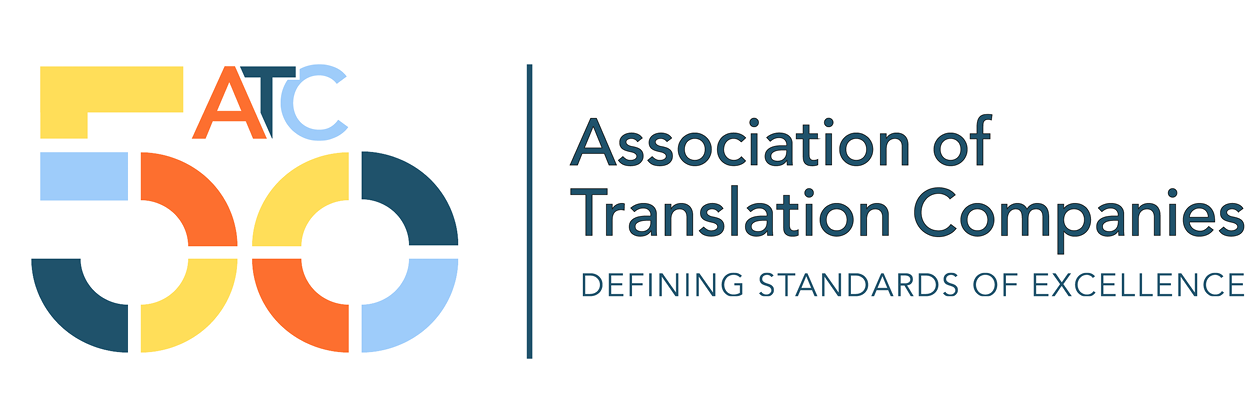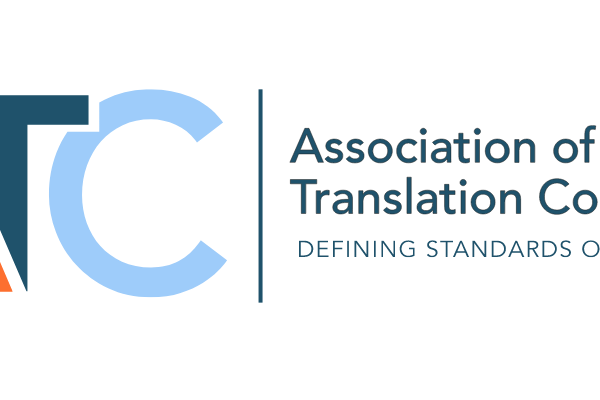To celebrate the ATC's 50th anniversary as trade association and community of language service companies,…

The ATC’s Member of the Month in September 2025 is Wolfestone Group, a global localization powerhouse with its roots deeply in the Welsh soil. Celebrating its 20th anniversary next year, Wolfestone has grown steadily from a small local provider into a dynamic international group through a combination of strategic acquisitions, diversification, and innovation. Today, its Group companies include Wolfestone UK, VoiceBox, RLI, TauRho Transcribes, and Omni Intercommunications.
We caught up with Wolfestone Group’s Managing Director Alex-Michelle Parr to talk about the company’s journey, its evolving business model, and what the future of language services industry might look like.
Diversification & growth through acquisition
Wolfestone was founded in 2006 by entrepreneurs Anna Bastek and Roy Allkin, long-term ATC Chair and Council Member, which means that 2026 will mark the company’s 20th anniversary, a milestone that Managing Director Alex-Michelle Parr sees as both a celebration and a reflection on how far the company has come.
“The business started out very traditionally, focusing on certificates, individual clients and public sector work. By the time I joined in 2015, the company had a real thirst for growth, and my focus from very early on was to move further into the corporate sector, building regular and scalable client relationships,” she recalls.
That strategic shift opened the door to new possibilities and, soon after, to a series of acquisitions that have shaped the Wolfestone Group. First came VoiceBox, spun out internally to serve multimedia and voice-over markets. Then, in 2018, Wolfestone acquired Robertson Languages International (now branded RLI), a landmark deal that combined translation with language training. “Looking back, the ROI on that deal has been greater than any investment we’ve made in sales – many of those clients are still among our top ten today,” says Alex-Michelle.
Subsequent acquisitions included smaller training provider City Lingual now incorporated within RLI, German company Pursuit Translations to mitigate the risks of Brexit and to provide clients a hub on EU soil, and most recently two high-profile deals: UK-based transcription specialist TauRho Transcribes and US-based Omni Intercommunications, Wolfestone’s first acquisition in the American market supporting its existing US presence. Altogether, Wolfestone Group now employs nearly 60 people globally.
“We’ve learned that the best acquisitions are those where we inherit strong teams, new and diversified services, as well as client lists. It’s not just about revenue; it’s about people, culture, and long-term fit,” Alex-Michelle explains.
From sales-heavy to account management focus
While acquisitions have been a key driver of growth, Wolfestone has also restructured how it develops client relationships.
“The language services industry has been changing rapidly over the past few years, and winning new business has been a challenge. For that reason, we have turned from sales-first to client-focused account management,” Alex-Michelle notes. “It’s about looking at different ways of bringing in clients and being a one-stop localization shop to existing ones, and then having really strong account managers to nurture and grow those relationships.”
This shift reflects broader changes in the market. With AI and more readily-available language technologies making new business harder to win, Wolfestone sees long-term value in retaining and expanding existing accounts. “If we spoke again in a couple of years, I think we’ll be able to show clearly that this pivot is working. Already, the initial signs are very positive,” Alex-Michelle says.
The future: diversification, AI, and consultancy
Looking ahead, Alex-Michelle is realistic but also optimistic about the rapid changes reshaping the industry.
“I definitely think the industry will still be growing in five years’ time, but the days of providing transactional translation services will probably be behind most language service companies,” she says. “The real value is in moving towards consultancy – helping clients understand what technology is out there, advising on the best solutions, and helping them reach their global audiences more holistically. It’s definitely not one-size-fits-all.”
Wolfestone already integrates AI with human-in-the-loop processes, balancing efficiency with quality. “AI voice-overs, subtitles, generative tools – they’re changing the landscape. But our job is to evaluate them critically, to educate our clients on where they add value and where they don’t, and to manage multiple technologies to deliver the best outcomes.”
For Alex-Michelle, the key is not to be fearful of change but to embrace it strategically. “It’s a good time for companies to reflect on what they’re good at and what their unique strengths are. For us, that means diversifying services, adopting the right technology, and always taking a consultative, positive approach with clients. Our long and varied experience, demonstrating the quality of our service through our ISO certifications, and our commitment to giving back to the industry and being active within the ATC are standing us in good stead.”
As Wolfestone approaches its 20th anniversary, its combination of acquisition-led growth, client-centric strategy, and forward-looking innovation sets the stage for the next two decades of success.
Alex-Michelle Parr was in conversation with ATC CEO Raisa McNab.


